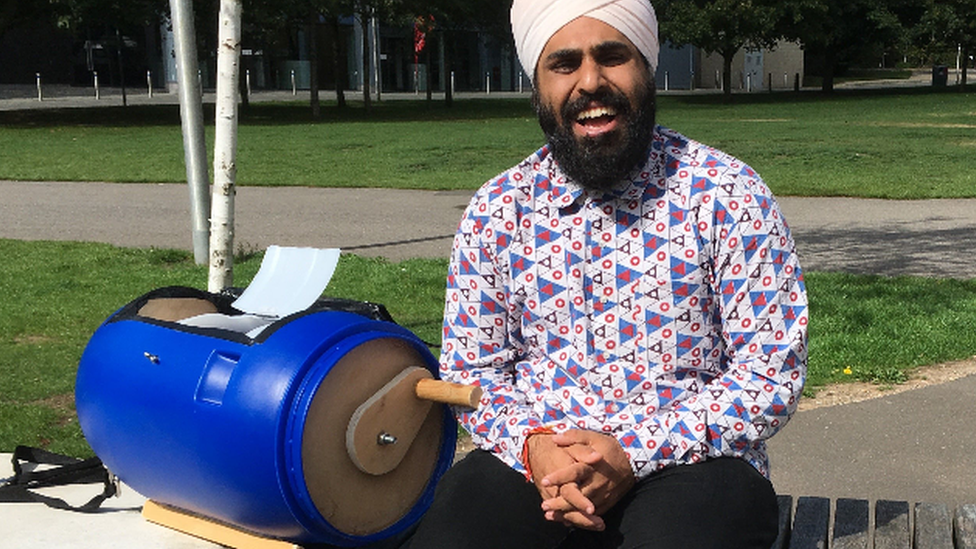Iraqi refugees given hand-cranked washing machines
- Published
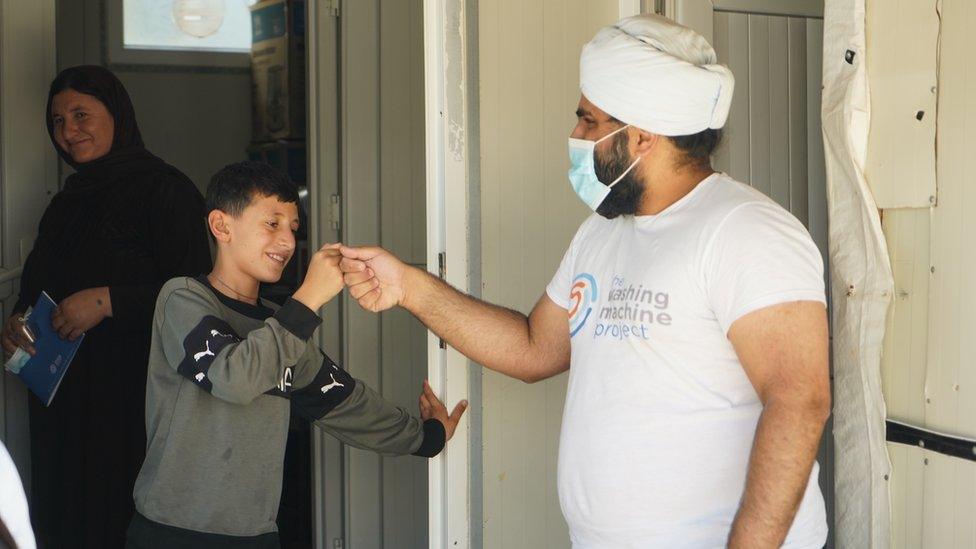
Navjot Sawnhey is distributing the Divyas in camps across northern Iraq
The inventor of a hand-cranked washing machine has travelled to Iraq to distribute the low-cost device to refugees.
Navjot Sawhney created the Divya to allow those living in poverty to be able to wash their clothes more easily.
He said the two-week trip to northern Iraq to hand out the machines has been a "completely humbling experience".
"To give them the dignity of clean clothes is very fulfilling," said the former University of Bath student.
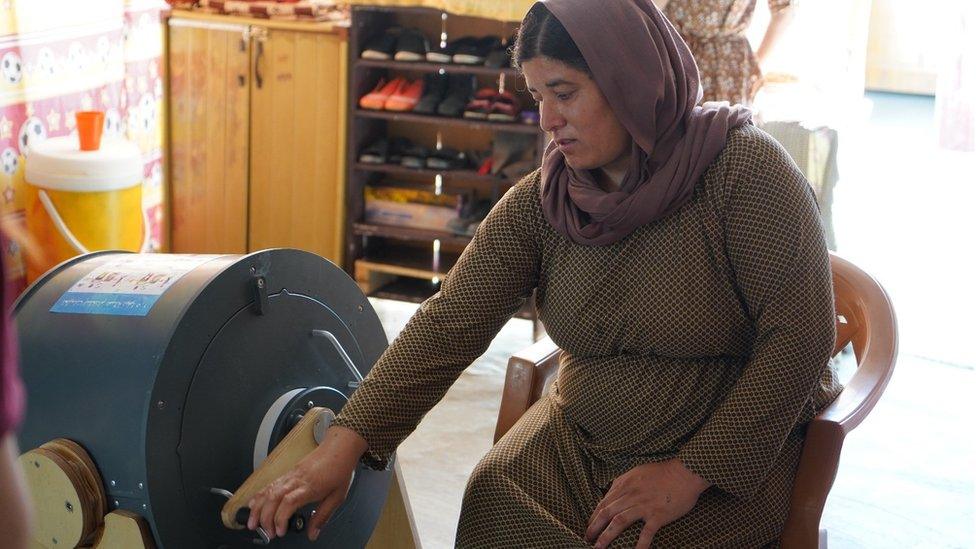
The Washing Machine Project aims to make it easier for people in refugee camps and in poorer regions to wash their clothes
The machines are created in the UK and sent to those without access to electricity and water, who would otherwise need to wash clothes by hand.
These include people with disabilities, female survivors of abuse and people who have been held captive by terrorist groups.
"Some of these families still have members missing, some of these women have suffered major trauma and abuse. It's just really heartbreaking stuff," said Mr Sawhney.
"Handwashing clothes is restrictive and painful. The Divya means women, who are usually the primary washers, have more time to rest," he added.
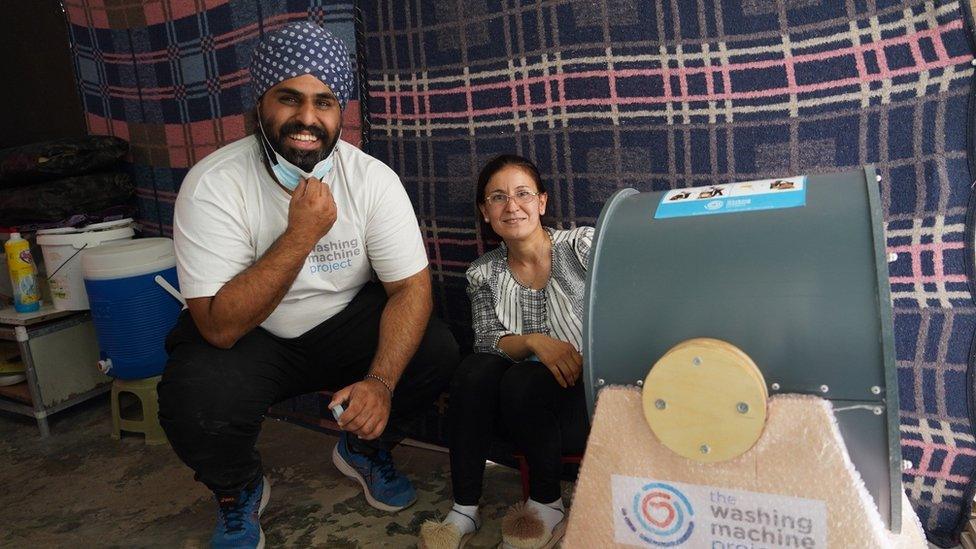
The former University of Bath student is now aiming to make the machines available in more countries
Mr Sawhney was inspired to create the machine after witnessing the struggles of his neighbour while volunteering in India, after quitting his engineering job in Wiltshire.
"When you read the news, places like this can seem really daunting but the people here are like everyone else in the world. They just want their lives to go back to normal," he said.
"This is my third trip to Iraq and each time I come it is unique and I learn so much. Every time I'm reminded of the dignity and pride people have in clean clothes," he added.
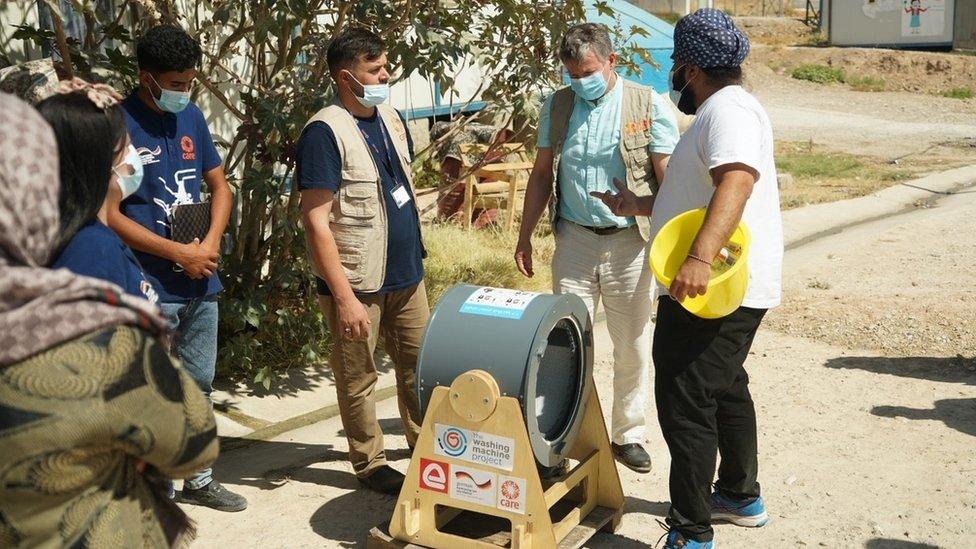
Mr Sawhney is working with humanitarian charity Care International to distribute the machines to vulnerable families
The engineer set up the Washing Machine Project in 2018 and it now has orders from 15 countries around the world. He is working towards rolling the device out in Uganda, India, Lebanon and Jordan.
"Everyone is worried about the situation in Afghanistan and what that may mean for the stability of the region, especially people like the Yazidis who we are supporting here, who have suffered so greatly at the hands of terrorist organisations.
"We're really proud to be here to do our part," he added.
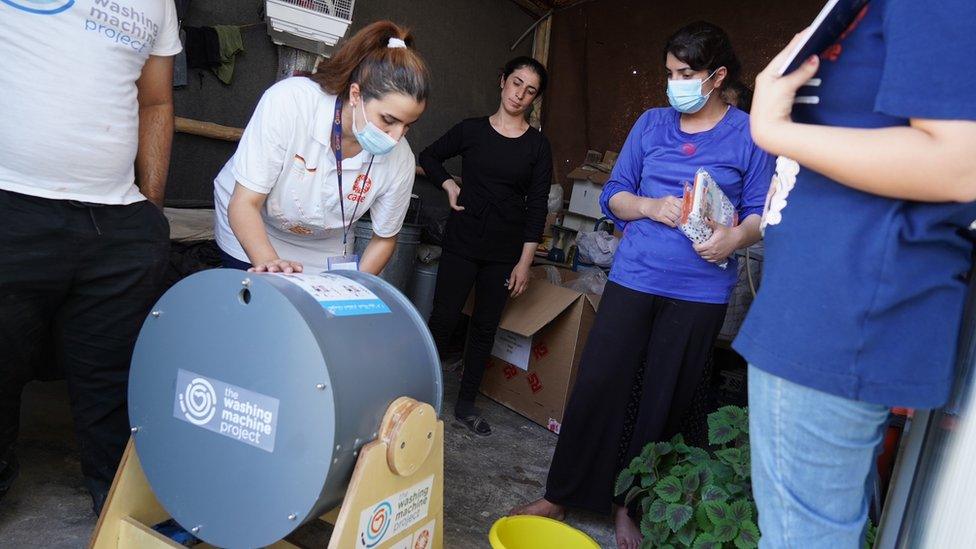
The machines require no electricity are are designed to be robust, simple to operate and easy to repair
On his current trip, he said one particular lady had stood out.
"She's a Yazidi lady who has been in the camp since 2016. Three of her family are still being held captive and she says she has been waiting for one of these machines for a month," he added.

Follow BBC West on Facebook, external, Twitter, external and Instagram, external. Send your story ideas to: bristol@bbc.co.uk , external
- Published24 April 2021
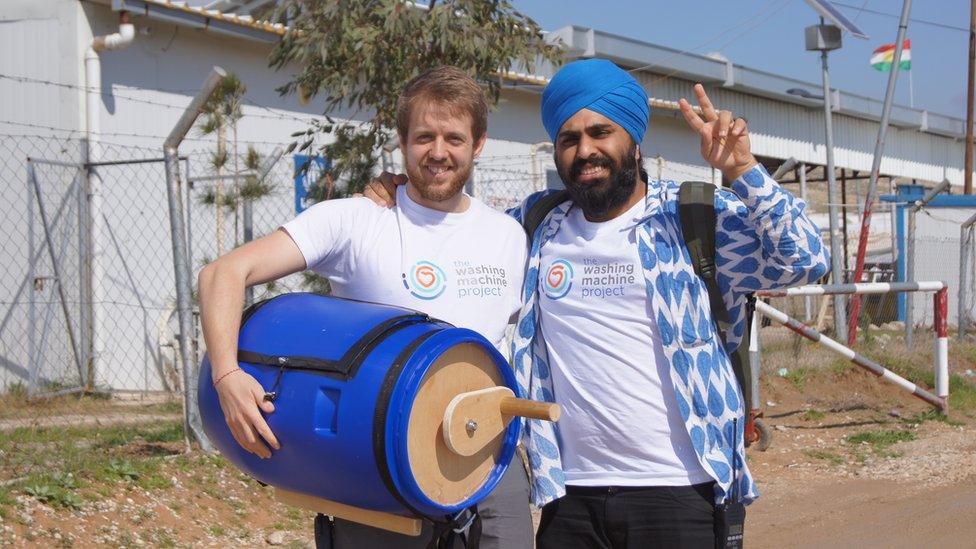
- Published13 August 2021
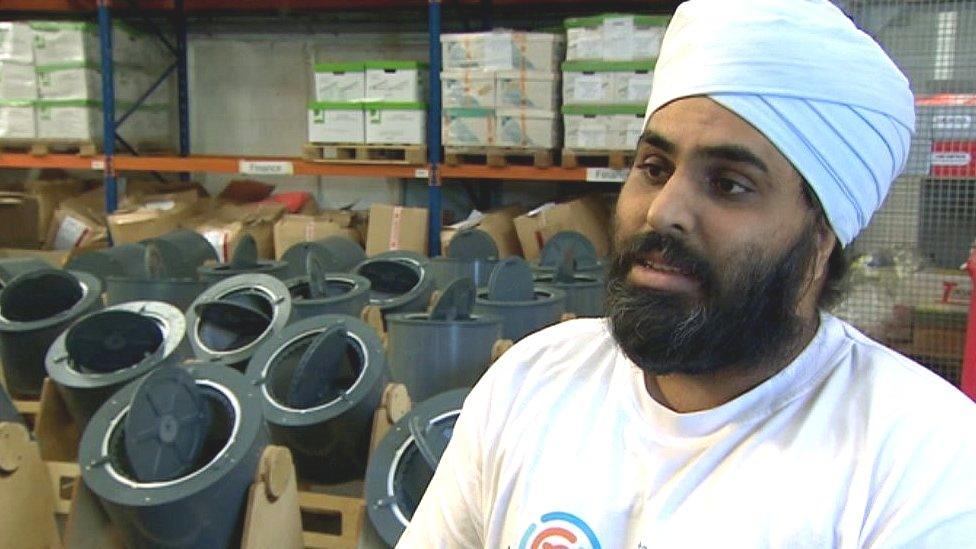
- Published23 December 2019
